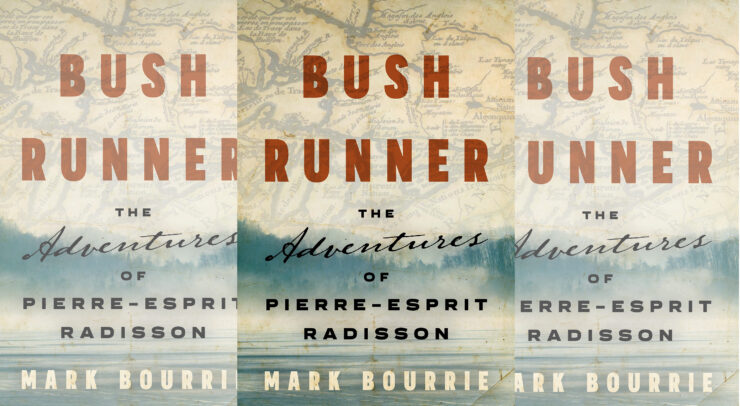Biography tells little-known story of cutthroat 1600s businessman
U of O alumnus Mark Bourrie’s latest book, Bush Runner, looks to be a captivating page turner that you won’t be able to believe is also a true story.
The book focuses on the adventures of Pierre-Esprit Radisson, a man who lived life on his own terms in the 1600s. Former journalist and lawyer Bourrie describes Radisson as “an eager hustler with no known scruples,” the accurate summation of a man who approached every part of his life with his own best interests in mind, regardless of who else his choices might affect.
Radisson double crossed the British, French, Dutch and the First Nations Communities that welcomed him as if he was one of their own.
“It was nothing personal though, it was purely business,” Bourrie said in an interview with the Fulcrum. “Anything he did was for personal gain and he was the ultimate opportunist.”
Radisson is someone who up to now is not a well-known name in Canadian history. There were only ever references to him in footnotes or at the end of paragraphs in textbooks — and the only reason for this is because his involvement with the Arctic fur trade led to the creation of the world-famous Hudson Bay Company, North America’s oldest corporation.
His various escapades show him to be a ruthless businessman, treating everyone he met with equal measure. Radisson also lived through many major events.
“He was marooned by pirates in Spain, only to arrive back in London at the end of London’s Great Plague,” Bourrie explained. Radisson also survived the Great Fire of London in 1666 among other things. His life is something one would expect to come straight out of Hollywood, the evidence of his adventures sourced from Radisson’s personal journals making the entire story even more impressive and bizarre to believe.
Bourrie said that whilst researching the book, new source material was discovered by a distant relative of Radisson’s in the royal archives at Windsor Castle after receiving special access to look through the records. This is a twist that couldn’t have been foreseen but one that fits in naturally with the exuberant life that Radisson led.
“Radisson was ruthless but had such an interesting personality and the way he wrote about himself was unlike anything I’ve ever seen,” said Bourrie.
Radisson’s story is one that weaves in and out of global events, as he made the best of things for himself along the way — his selfishness mirrored strangely by the honesty in his journals, including candidly admitting to cannibalism in an entry meant solely for the eyes of King Charles II.
Bush Runner shows the world at that time in an entirely different light compared to other works about this period. The fact that Radisson is only briefly mentioned in the footnotes of others’ textbooks proves, once again, that the devil really is in the details.
Looking at a Radisson branded hotel — named after the man himself — will never be the same again.
Bush Runner will be released on April 2, and is published by Biblioasis.








